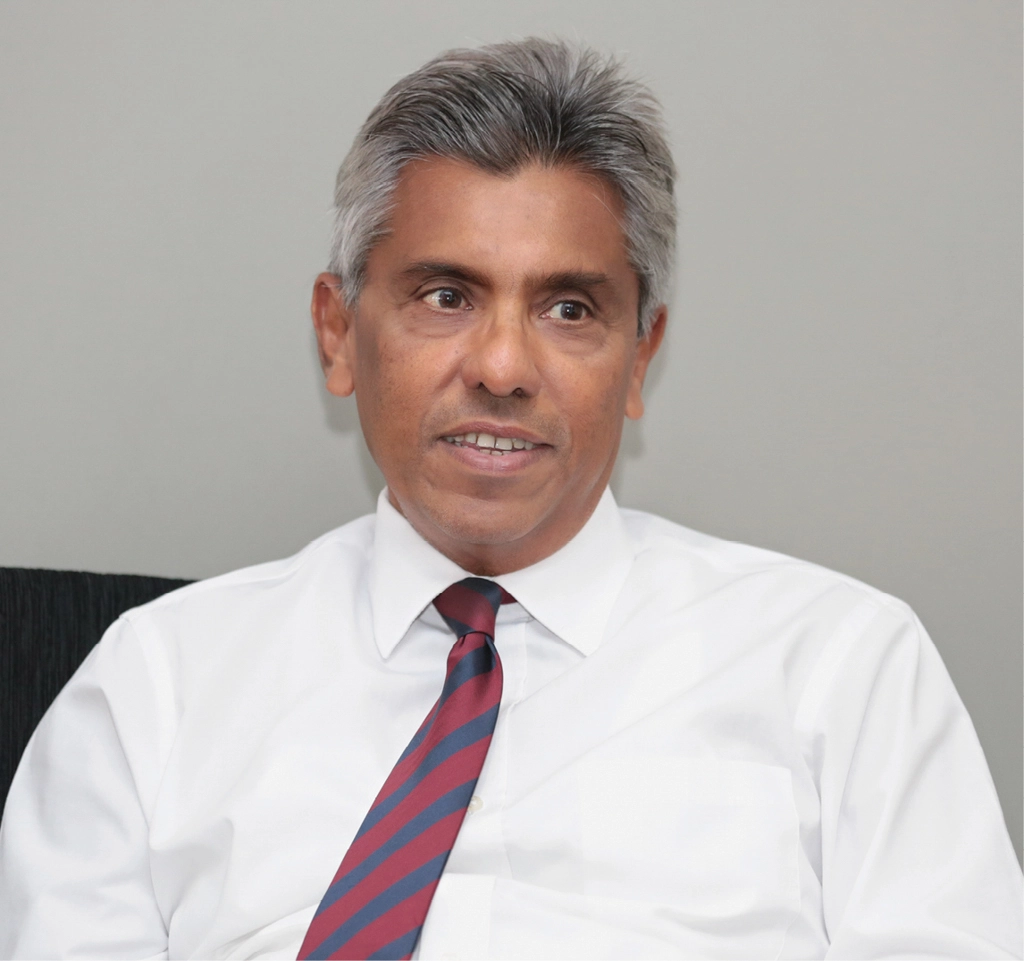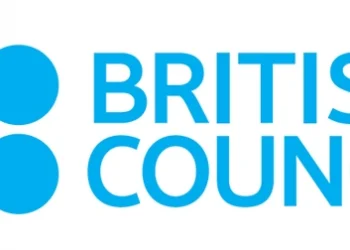
Melstacorp emerged into the limelight especially with the recent restructuring of Distilleries Company of Sri Lanka (DCSL) as its largest subsidiary. It is the first time in Sri Lanka that such a momentous transaction, especially in terms of size and value, has occurred. Amitha Gooneratne, Managing Director, speaks about the role of Melstacorp as a holding company and the performance of its subsidiaries and associated companies. The Group is positive and will continue to seek investment opportunities while capitalising on those that have already been made. Melstacorp will reach another milestone in the near future when it facilitates the recommencement of the trading in DCSL Shares.
By Udeshi Amarasinghe
Photography Mahesh Bandara and Menaka Aravinda
Can you describe the performance of Melstacorp over the past year?
Melstacorp is an investment holdings company that does not directly engage in running commercial businesses to generate income. Its revenue is primarily from dividend income from subsidiaries and associate companies. We have also rented properties from which we receive income. Our role as an investment holding company is to monitor the performances of our subsidiaries and associates, as well as search for new investment opportunities. If in our view an investment has reached maturity and ceases to form an integral part of the Group or does not fit into our long term vision, then we will exit while at the same time continue looking for new investment opportunities.
Distilleries Company of Sri Lanka (DCSL) is our main subsidiary after the restructure that took place towards the last quarter of 2016 and is the largest contributor of revenue to Melstacorp. Apart from Distilleries, we own approximately 48 per cent of Aitken Spence, and the share of profits from this company also provides a significant dimension to our overall profit profile.
DCSL has been a profitable company, but is susceptible to macro tax policy changes that momentarily impact on the company revenue and profitability. But then with performance adjustments the company returns to an acceptable level of normalcy. We have had some anxious moments because of upward revisions of excise duties and other levies that affected DCSL’s performance, which invariably impacts on Melstacorp plans and performance. That being said, we still generate substantial revenue from DCSL, which has been quite satisfactory.
There are certain sectoral investments within the portfolio, which could do better. These investments are a drag on our performance to some extent. Our investment in telecommunications over the last few years has not yielded the expected results. The losses at Lanka Bell have dented the results of Melstacorp.
The plantation sector too has not done well. Although it is beginning to look better than what it was two years ago with improved tea prices, this sector needs to perform better to justify our investments. We have a few other companies that are much smaller, such as a textile company, which have the potential to step up performance.
We are also in the finance sector with direct investments in an insurance company and in a finance company that are both doing well. We have investments in logistics and in hydropower, which also have been profitable.
We have a significantly large and diverse portfolio of investments in large listed corporates. Our interests in the banking and finance sector, and in the leisure industry are substantial. We also have sizeable stakes in the textile and tea industries. These companies have been doing well, but are exposed to the vagaries of the stock market. When the market prices move up we will have substantial gains on our investment portfolio.
In general, we have a mixed portfolio of companies, some of which have done well, while some others could do better. From an overall point of view, Melstacorp has been performing well in the backdrop of a challenging business environment. As for the future, we are always seeking new avenues of investment. The country is moving forward and the economy will expand, and Melstacorp remains positive and upbeat.
As For The Future, We Are Always Seeking New Avenues Of Investment. The Country Is Moving Forward And The Economy Will Expand, And Melstacorp Remains Positive And Upbeat.
Can you elaborate on the significance of DCSL coming under the structure of Melstacorp?
The primary purpose of Melstacorp is to ensure that our investments are monitored and well managed. Until the restructure in 2016, for a long time all investments were under DCSL. DCSL is governed by the National Authority on Tobacco and Alcohol Act, and one condition of that Act is that no commercial activity and publicity is permissible, and this posed a serious drawback to promoting the subsidiaries associated with the DCSL name – we couldn’t do any advertising and this was a serious concern. The intention therefore was to create an umbrella brand across the globe styled under Melstacorp. That was all the more reason that we felt that we should change the roles. Furthermore, the restructure is expected to unlock additional value for the original DCSL shareholders. These were the main reasons that motivated the DCSL restructure.
What can we expect from DCSL?
DCSL will be far more focused on the core business, which is distilling and manufacturing of alcoholic beverages. There are always ups and downs in this industry due to excise duty increases. The excise duty increases have a direct correlation with revenue of alcoholic beverages, but then sales pick up once again over time. With the increased number of tourist arrivals that is expected to gather further momentum in the future, and coupled with GDP growth, we feel that in the long term there will be greater potential for DCSL.
We have the most modern factory in the country, and we have sufficient capacity to meet future demand. A few years ago, we invested substantially in the expansion of DCSL facilities. Any expansion within as well as outside the current market share of DCSL can be catered to without much difficulty.
Can you elaborate on the aspect of being one of the highest tax payers in the country?
DCSL pays not only corporate tax at the highest rate, but also pays excise duty, VAT and NBT. Profitability is essentially volume driven. Taxes are not going to come down; it is something we have to live with. It is a question of gaining higher market share in the hope that the increased volumes will compensate for margins that are under constant pressure.
Can you explain the manner in which DCSL was transformed from a state sector enterprise to a private sector company (in terms of efficiency, performance and structure)?
The transformation took place long before I joined the Group. From what I gather the processes, procedures, technology and research and development, around the manufacture and management operations were totally revamped and made more efficient. Wastage was substantially reduced and the Company was made to perform efficiently whilst continually improving the product quality. New products were launched through DCSL and its subsidiary Periceyl with the active support and assistance of a multinational distilleries company in developing these products.
As one of the biggest players in the plantation sector, what is the potential of this sector?
One of the critical factors affecting the plantation sector is the market prices of the commodities. Tea prices have improved and rubber prices have marginally improved. Primarily what is weighing heavy on the industry is the high Cost of Production (CoP). Very often the CoP is higher than the Net Sales Average due to many factors. One attributable reason is weeding, which is labour intensive, and that is becoming expensive. We have to find ways of producing at lower cost as well as increasing yields by implementing better agricultural methods and practices by investing in research while dealing with high labour costs. Sourcing labour is also an issue and it will continue to be a challenge in the years to come. This is not only affecting us; it is a common issue affecting the entire country. Land is scarce in a country like ours, where there is a limitation on land; we are hopeful that we can increase the yield, which we are trying to do. We should be able to at some point in time make plantations profitable again.
We are also looking at other aspects of agriculture, not just the traditional crops, but new varieties which will keep us more engaged in this sector.
We Assured Our Shareholders That We Will Give Them An Opportunity To Be Shareholders Of DCSL Once Again, Because They Gave Up Their DCSL Shares In Return For Melstacorp Shares.
Melstacorp is also known in the power sector?
Aitken Spence plays a major role in the power sector of the country, and Melstacorp holds approximately 48 per cent of the shares of this company. We have direct exposure to the power sector through Bogo Power, which is a profitable entity.
In terms of the telecommunications sector, what do you think is the way forward in terms of Lanka Bell?
We are banking on the growth in the LTE space. Dialog was the only other company that had taken the same route at the time we invested in LTE. We invested heavily in providing services and installing more base stations to cover the island wide network. It will take time for that to pay off and we remain committed. We will expand and strive for greater market share and have a much wider coverage. That is what we are focusing on. We also have CDMA, but that is more of a sunset technology because many people today use more mobiles rather than landlines.
Do you have any plans to expand to overseas markets?
It is something that we cannot say no to. The prospect of Melstacorp managing investments overseas is an area that cannot be ruled out but that would depend on the attractiveness of the markets and the potential the investments present. We always look for investments in Sri Lanka and if we find that there is investment potential in a neighbouring country, we will certainly explore and exploit that.
What can we expect from Melstacorp this year?
We restructured DCSL in September 2016. It was a momentous transaction in terms of size and value, which essentially converted a subsidiary of a very large conglomerate to become the parent company. We assured our shareholders that we will give them an opportunity to be shareholders of DCSL once again, because they gave up their DCSL shares in return for Melstacorp shares.
We suspended the listing of DCSL because of this transaction but we promised to at some point in time give them back the opportunity to hold shares in DCSL and that is one of our immediate priorities. The process is at a very advanced stage right now. We are working to live up to the pledge we made to our shareholders. It is expected that the trading of DCSL shares will recommence soon with Melstacorp remaining the main shareholder.
What are the new industries that the Group is interested in venturing into?
The Group has in the past played a role in the healthcare industry and may actively look at re-entering this sector.
The Group may also consider participating in the construction support industry.
What more can be expected from the other sectors of the Group?
We are paying close attention to the loss making companies and trying to turnaround these business or as a last resort develop a plan to exit from these investments.
Can you elaborate on the future of Melstacorp?
We are confident that Melstacorp would emerge as one of the leading diversified conglomerates in the country. In time to come Melstacorp would be working towards generating a higher revenue from the non-alcoholic beverage industries.






